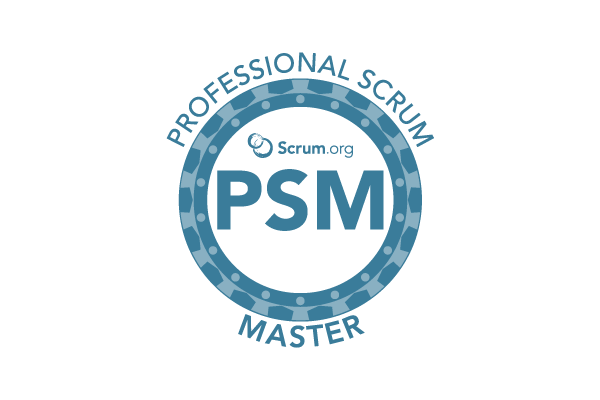Course Curriculum
Course Content
- Understanding the origins and principles of Scrum.
- Exploring the values of the Agile Manifesto.
- In-depth overview of the Scrum framework, including roles, events, artifacts, and rules.
- Understanding the responsibilities of the Scrum Master, Product Owner, and Development Team.
- Delving into the three pillars of Scrum theory: transparency, inspection, and adaptation.
- Understanding how empiricism drives decision-making in Scrum.
- Detailed examination of Scrum events: Sprint Planning, Daily Scrum, Sprint Review, and Sprint Retrospective.
- Exploring the purpose, frequency, and activities of each event.
- Detailed responsibilities of the Scrum Master role.
- Techniques for facilitating collaboration, removing impediments, and coaching the team.
- Understanding the concept of servant-leadership.
- Applying servant-leadership principles to the Scrum Master role.
- Introduction to scaling Scrum across multiple teams and in larger organizations.
- Understanding how to promote agility at the organizational level.
- Practical scenarios and case studies illustrating the application of Scrum in real-world projects.
- Addressing common challenges and best practices.
- Tips and strategies for successfully passing the PSM I assessment.
- Practice questions and mock assessments.
Quick Enquiry
Exam & Certification
There are three levels of PSM certification: PSM I, PSM II, and PSM III. Each level assesses different levels of proficiency and expertise in applying Scrum principles and practices.
While completing a PSM training course is not mandatory to take the certification assessment, it is highly recommended. The training provides a solid foundation of Scrum knowledge and prepares you for the assessment.
The PSM I assessment includes multiple-choice questions, true/false questions, and scenario-based questions. You have a limited time (usually 60 minutes) to complete the assessment.
The passing score for the PSM I certification assessment is typically around 85% or higher. Achieving this score demonstrates a strong understanding of Scrum basics.
Testimonials
PSM FAQ's
The PSM course is a training program designed to provide participants with a deep understanding of the Scrum framework and the role of a Scrum Master. It covers Scrum principles, practices, roles, events, and artifacts.
The PSM course is suitable for individuals interested in becoming Scrum Masters, existing Scrum Masters looking to enhance their skills, and anyone involved in Agile project management. Its also beneficial for team members, managers, and stakeholders who want to understand how Scrum works.
Generally, there are no strict prerequisites for attending the PSM course. However, having a basic understanding of Agile concepts can be helpful.
The PSM course covers a wide range of topics including the Scrum framework, roles (Scrum Master, Product Owner, Development Team), events (Sprint Planning, Daily Scrum, Sprint Review, Sprint Retrospective), artifacts (Product Backlog, Sprint Backlog, Increment), Scrum values, empirical process control, coaching techniques, and more.
PSM certification validates your knowledge and understanding of Scrum principles. It demonstrates your commitment to continuous improvement and your ability to contribute effectively as a Scrum Master or Agile practitioner.
Yes, PSM certification is recognized internationally and respected in the Agile community. Its a valuable credential for professionals seeking roles in Agile project management.
You can find authorized PSM training providers on the official Scrum.org website. Make sure to choose a reputable provider that offers the specific certification level you are interested in

.webp)
.webp)


